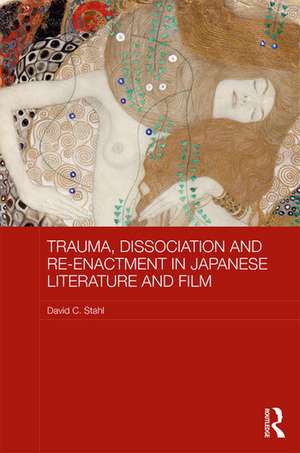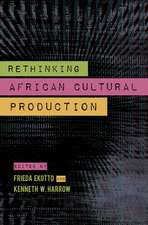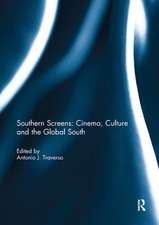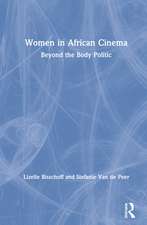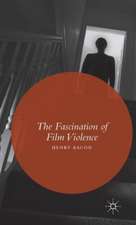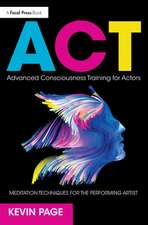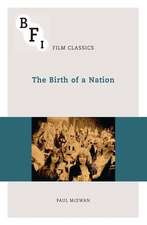Trauma, Dissociation and Re-enactment in Japanese Literature and Film: Routledge Contemporary Japan Series
Autor David Stahlen Limba Engleză Hardback – 12 iun 2017
In this book, David Stahl conducts in-depth readings and interpretations of a set of Japanese novels and film. By introducing the methodology of trauma/PTSD studies, Stahl seeks to provide a better understanding of the insights of Japanese writers and directors into their societies, cultures and histories. In particular, by building on the work of practitioner-theoreticians, such as Pierre Janet and Judith Herman, Stahl analyses a number of key texts, including Kawabata Yasunari’s Sleeping Beauties (1961), Enchi Fumiko’s Female Masks (1958) and Imamura Sho- hei’s Vengeance is Mine (1979). Consequently, through using concepts of social trauma, dissociation, failed mourning, revenge and narrative memory, this book sheds new light on the psychological aftereffects and transgenerational legacies of trauma depicted in Japanese works.
Trauma, Dissociation and Re-enactment in Japanese Literature and Film will be of interest to students and scholars of Japanese Literature and Cinema, as well as those interested in Japanese History and Trauma Studies.
| Toate formatele și edițiile | Preț | Express |
|---|---|---|
| Paperback (1) | 412.37 lei 6-8 săpt. | |
| Taylor & Francis – 17 ian 2019 | 412.37 lei 6-8 săpt. | |
| Hardback (1) | 1001.07 lei 6-8 săpt. | |
| Taylor & Francis – 12 iun 2017 | 1001.07 lei 6-8 săpt. |
Din seria Routledge Contemporary Japan Series
-
 Preț: 311.18 lei
Preț: 311.18 lei - 8%
 Preț: 383.06 lei
Preț: 383.06 lei -
 Preț: 325.09 lei
Preț: 325.09 lei - 9%
 Preț: 934.96 lei
Preț: 934.96 lei -
 Preț: 348.51 lei
Preț: 348.51 lei -
 Preț: 340.61 lei
Preț: 340.61 lei -
 Preț: 327.41 lei
Preț: 327.41 lei -
 Preț: 309.55 lei
Preț: 309.55 lei -
 Preț: 309.93 lei
Preț: 309.93 lei -
 Preț: 202.94 lei
Preț: 202.94 lei -
 Preț: 310.99 lei
Preț: 310.99 lei -
 Preț: 663.95 lei
Preț: 663.95 lei - 14%
 Preț: 1002.06 lei
Preț: 1002.06 lei - 18%
 Preț: 1056.00 lei
Preț: 1056.00 lei - 18%
 Preț: 1061.93 lei
Preț: 1061.93 lei -
 Preț: 348.40 lei
Preț: 348.40 lei -
 Preț: 483.08 lei
Preț: 483.08 lei -
 Preț: 484.04 lei
Preț: 484.04 lei - 28%
 Preț: 820.32 lei
Preț: 820.32 lei - 23%
 Preț: 327.08 lei
Preț: 327.08 lei - 18%
 Preț: 1162.39 lei
Preț: 1162.39 lei - 18%
 Preț: 951.96 lei
Preț: 951.96 lei -
 Preț: 290.77 lei
Preț: 290.77 lei - 25%
 Preț: 823.99 lei
Preț: 823.99 lei - 18%
 Preț: 703.79 lei
Preț: 703.79 lei - 18%
 Preț: 1051.60 lei
Preț: 1051.60 lei - 18%
 Preț: 1059.84 lei
Preț: 1059.84 lei -
 Preț: 390.96 lei
Preț: 390.96 lei - 18%
 Preț: 1110.92 lei
Preț: 1110.92 lei - 18%
 Preț: 1220.42 lei
Preț: 1220.42 lei -
 Preț: 277.04 lei
Preț: 277.04 lei - 28%
 Preț: 791.43 lei
Preț: 791.43 lei -
 Preț: 447.51 lei
Preț: 447.51 lei -
 Preț: 487.44 lei
Preț: 487.44 lei -
 Preț: 328.95 lei
Preț: 328.95 lei - 18%
 Preț: 1113.95 lei
Preț: 1113.95 lei - 18%
 Preț: 1058.79 lei
Preț: 1058.79 lei - 24%
 Preț: 129.96 lei
Preț: 129.96 lei - 18%
 Preț: 1007.48 lei
Preț: 1007.48 lei - 28%
 Preț: 818.93 lei
Preț: 818.93 lei - 18%
 Preț: 1059.84 lei
Preț: 1059.84 lei -
 Preț: 386.30 lei
Preț: 386.30 lei - 18%
 Preț: 1056.95 lei
Preț: 1056.95 lei
Preț: 1001.07 lei
Preț vechi: 1220.81 lei
-18% Nou
Puncte Express: 1502
Preț estimativ în valută:
191.58€ • 199.27$ • 158.16£
191.58€ • 199.27$ • 158.16£
Carte tipărită la comandă
Livrare economică 15-29 aprilie
Preluare comenzi: 021 569.72.76
Specificații
ISBN-13: 9781138733251
ISBN-10: 1138733253
Pagini: 246
Dimensiuni: 156 x 234 x 16 mm
Greutate: 0.48 kg
Ediția:1
Editura: Taylor & Francis
Colecția Routledge
Seria Routledge Contemporary Japan Series
Locul publicării:Oxford, United Kingdom
ISBN-10: 1138733253
Pagini: 246
Dimensiuni: 156 x 234 x 16 mm
Greutate: 0.48 kg
Ediția:1
Editura: Taylor & Francis
Colecția Routledge
Seria Routledge Contemporary Japan Series
Locul publicării:Oxford, United Kingdom
Public țintă
Postgraduate and UndergraduateCuprins
Introduction
1. Trauma/PTSD Studies Theory
2. Kawabata Yasunari’s Thousand Cranes
3. Enchi Fumiko’s Female Masks
4. Kawabata Yasunari’s Sleeping Beauties
5. Imamura Shōhei’s Vengeance is Mine
Conclusion
1. Trauma/PTSD Studies Theory
2. Kawabata Yasunari’s Thousand Cranes
3. Enchi Fumiko’s Female Masks
4. Kawabata Yasunari’s Sleeping Beauties
5. Imamura Shōhei’s Vengeance is Mine
Conclusion
Notă biografică
David C. Stahl is Professor of Japanese Literature and Cinema at Binghamton University. His research interests are trauma/PTSD studies and artistic representation of social trauma and its aftereffects.
Recenzii
"I believe that Stahl has chosen texts of the highest artistic value for his analysis. Each text displays an inimitably masterful stylistic formation as well as psychological and narrative depths that could puzzle the most experienced readers. What is more, these texts unflinchingly depict the numbing sense of immorality the main characters exhibit."
Hosea Hirata, Contemporary Japan, Vol 30, No 1 (2018), Tufts University
Hosea Hirata, Contemporary Japan, Vol 30, No 1 (2018), Tufts University
Descriere
Japanese literature and film have frequently been approached using lenses such as language, genre and ideology. Yet, despite a succession of major social traumas that have marked, and in many ways shaped and defined much of modern Japan, Japanese fiction and cinema have not often been examined psychoanalytically.
In this book, David Stahl conducts in-depth readings and interpretations of a set of Japanese novels and film. By introducing the methodology of trauma/PTSD studies, Stahl seeks to provide a better understanding of the insights of Japanese writers and directors into their societies, cultures and histories. In particular, by building on the work of practitioner-theoreticians, such as Pierre Janet and Judith Herman, Stahl analyses a number of key texts, including Kawabata Yasunari’s Sleeping Beauties (1961), Enchi Fumiko’s Female Masks (1958) and Imamura Sho- hei’s Vengeance is Mine (1979). Consequently, through using concepts of social trauma, dissociation, failed mourning, revenge and narrative memory, this book sheds new light on the psychological aftereffects and transgenerational legacies of trauma depicted in Japanese works.
Trauma, Dissociation and Re-enactment in Japanese Literature and Film will be of interest to students and scholars of Japanese Literature and Cinema, as well as those interested in Japanese History and Trauma Studies.
In this book, David Stahl conducts in-depth readings and interpretations of a set of Japanese novels and film. By introducing the methodology of trauma/PTSD studies, Stahl seeks to provide a better understanding of the insights of Japanese writers and directors into their societies, cultures and histories. In particular, by building on the work of practitioner-theoreticians, such as Pierre Janet and Judith Herman, Stahl analyses a number of key texts, including Kawabata Yasunari’s Sleeping Beauties (1961), Enchi Fumiko’s Female Masks (1958) and Imamura Sho- hei’s Vengeance is Mine (1979). Consequently, through using concepts of social trauma, dissociation, failed mourning, revenge and narrative memory, this book sheds new light on the psychological aftereffects and transgenerational legacies of trauma depicted in Japanese works.
Trauma, Dissociation and Re-enactment in Japanese Literature and Film will be of interest to students and scholars of Japanese Literature and Cinema, as well as those interested in Japanese History and Trauma Studies.
